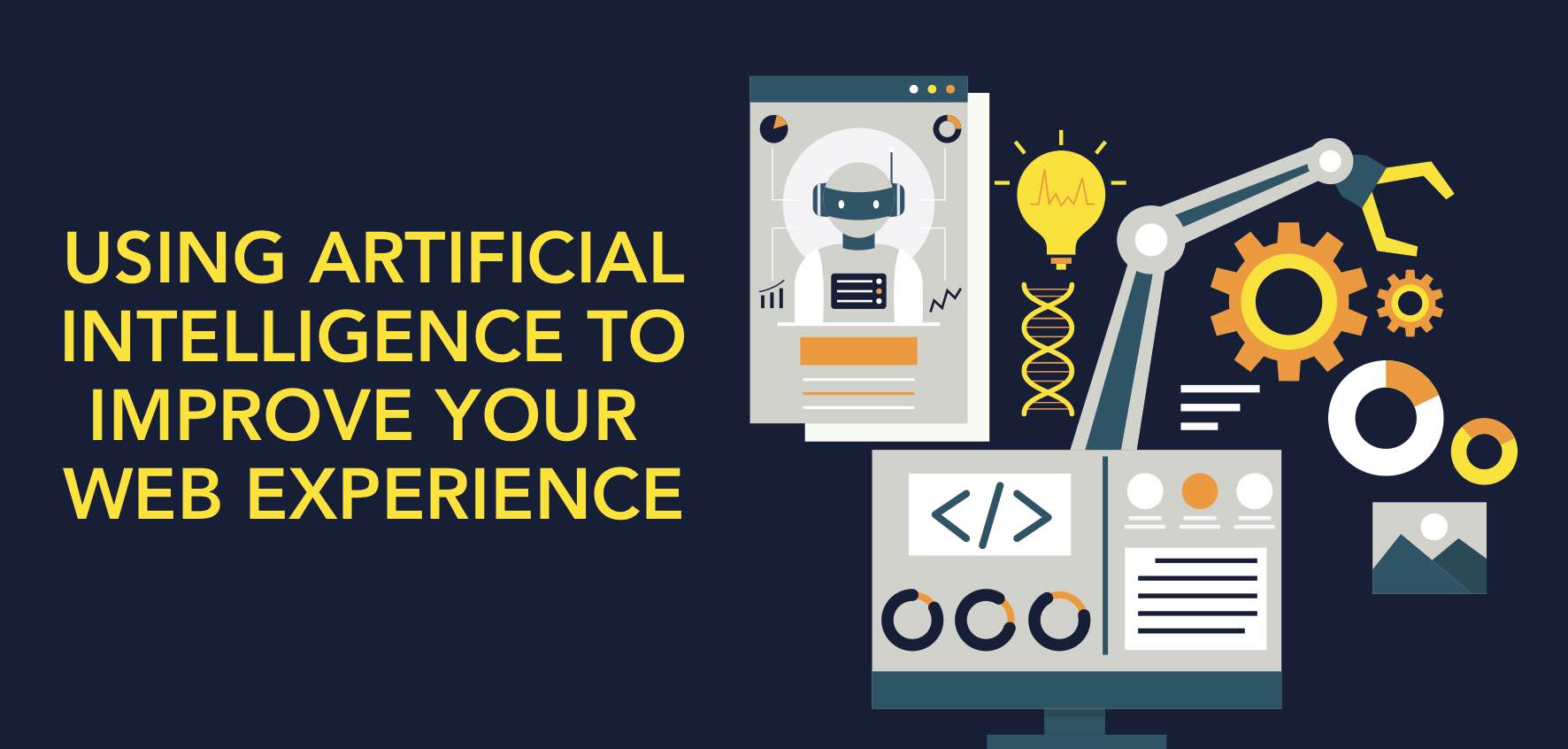
Using Artificial Intelligence to Improve Your Web Experience
Posted on July 3, 2023
-
Category:
- Atlanta Marketing,
- Atlanta Web Design
Using Artificial Intelligence to Improve Your Web Experience
Artificial intelligence (AI) has revolutionized various industries, and websites are no exception. Incorporating AI into your website can enhance user experience, boost engagement, and improve overall performance. In this article, we will explore the benefits of using AI for websites and delve into different areas where AI can be applied to enhance your online presence.
10 Ways to Improve Your Website with AI:
1. Website Creation:
AI-powered website builders have simplified the process of creating and designing websites. These platforms utilize machine learning algorithms to analyze user preferences, content relevance, and design patterns, resulting in visually appealing and user-friendly websites. Notable website builders such as Wix’s ADI and Squarespace’s AI have successfully implemented AI to streamline website creation.
2. Search Engine Optimization (SEO):
AI algorithms have transformed the way websites are optimized for search engines. With AI, you can automate keyword research, analyze competitors, and generate data-driven insights to enhance your SEO strategy. Tools like SEMrush utilize AI-powered algorithms to provide comprehensive SEO solutions.
3. Content Creation:
AI technology has revolutionized content creation by enabling automated content generation, content optimization, and personalized recommendations. Natural Language Processing (NLP) algorithms can analyze user preferences, generate engaging content, and even automate content updates. Companies like Grammarly leverage AI to improve content quality and plagiarism detection.
4. Real-Time Personalization:
AI-powered personalization enhances user experiences by delivering tailored content, recommendations, and product suggestions based on individual preferences. It’s beneficial for big and small companies. Amazon attributes 35% of its revenue to personalized product recommendations. By leveraging user behavior analysis, machine learning algorithms can dynamically adjust website elements to match user interests. Leading e-commerce platforms like Amazon and Netflix have successfully implemented AI for real-time personalization.
5. Churn Prediction:
Using AI, businesses can predict and prevent customer churn by analyzing user behavior, engagement patterns, and purchase history. By identifying potential churners, companies can take proactive measures to retain customers and increase loyalty. AI-powered customer retention platforms like Optimove and Salesforce Einstein have demonstrated significant improvements in reducing churn rates.
6. Online Customer Service:
AI-powered chatbots and virtual assistants have transformed online customer service by providing quick and efficient support. Natural Language Processing algorithms enable chatbots to understand and respond to customer queries, resolve issues, and provide personalized assistance. Companies like LiveChat and Zendesk utilize AI chatbots to enhance customer support.
7. Content Curation:
AI algorithms can analyze vast amounts of data to curate personalized content recommendations based on user preferences, behavior, and trends. By leveraging AI, websites can deliver relevant and engaging content to their audience, increasing user satisfaction and retention. Platforms like Flipboard and Pocket utilize AI to curate personalized news and article recommendations.
8. Lead Generation:
AI-powered lead generation tools can automate the process of capturing and qualifying leads. By analyzing user behavior and demographics, AI algorithms can identify potential leads and optimize lead nurturing strategies. Platforms like HubSpot and Marketo leverage AI for lead scoring and automation, resulting in improved lead conversion rates.
9. Accessibility:
AI can play a crucial role in improving website accessibility for individuals with disabilities. Text-to-speech and speech recognition technologies enable visually impaired users to interact with websites effectively. AI-powered accessibility tools like AccessiBe and UserWay provide solutions for enhancing website accessibility and compliance with accessibility standards.
10. Text/Language Analysis:
AI-powered text and language analysis tools enable businesses to extract meaningful insights from user-generated content, customer reviews, and social media data. Sentiment analysis, topic modeling, and language translation algorithms can help businesses understand customer sentiments, identify emerging trends, and generate actionable intelligence. By leveraging AI in text and language analysis, businesses can gain a deeper understanding of their customers, optimize their marketing strategies, and make data-driven decisions.
In conclusion, integrating AI into your website can revolutionize the way you engage with your audience and enhance their overall web experience. From streamlined website creation and improved SEO to personalized content recommendations and real-time personalization, AI offers a wide range of benefits. By leveraging AI technologies such as chatbots, lead generation tools, and accessibility solutions, you can provide exceptional customer support, capture qualified leads, and ensure inclusivity for all users. Embracing AI in your web strategy empowers you to stay ahead in the digital landscape and deliver a more personalized and satisfying user experience. So, harness the power of AI and unlock the full potential of your website.
